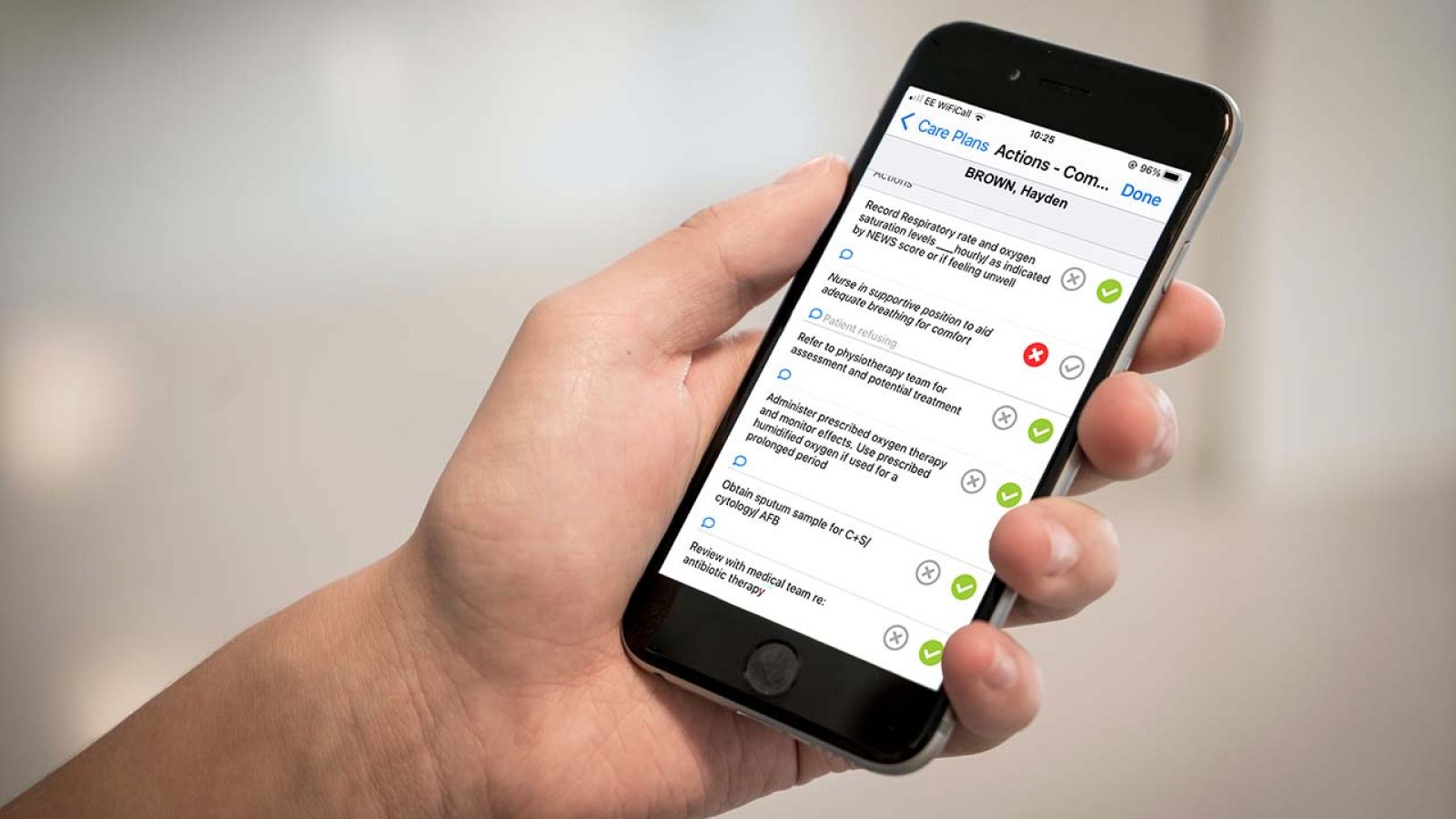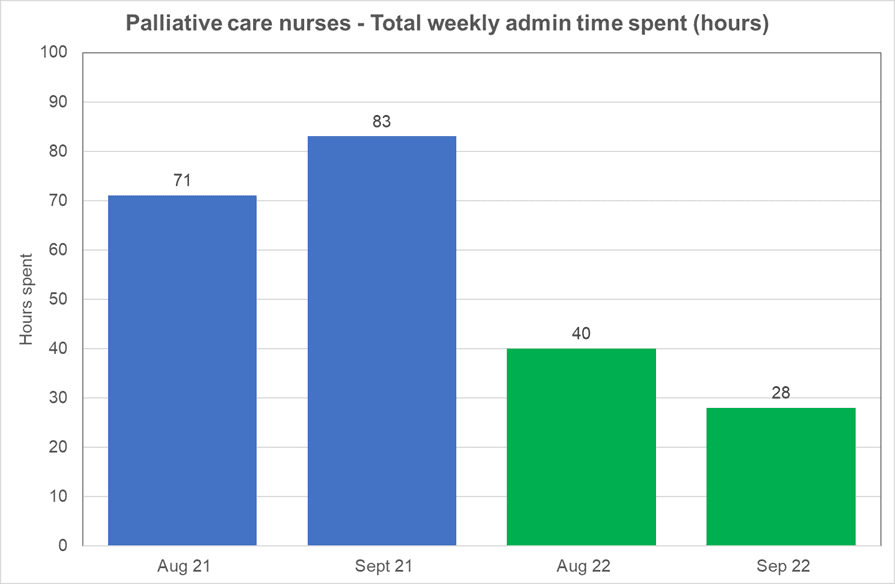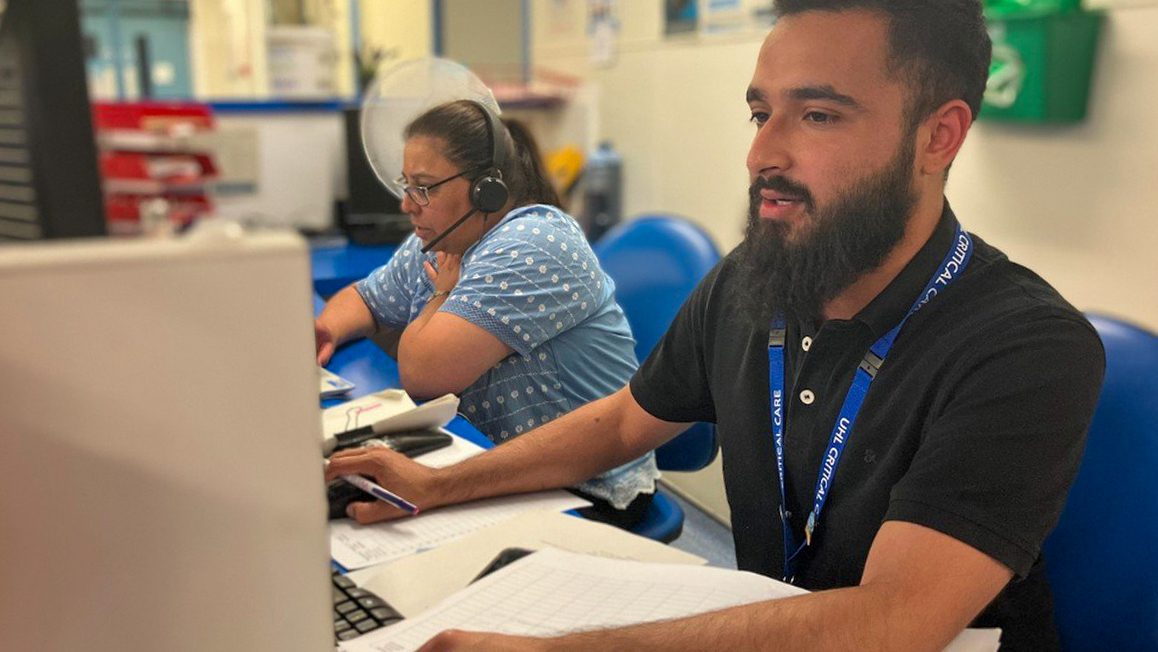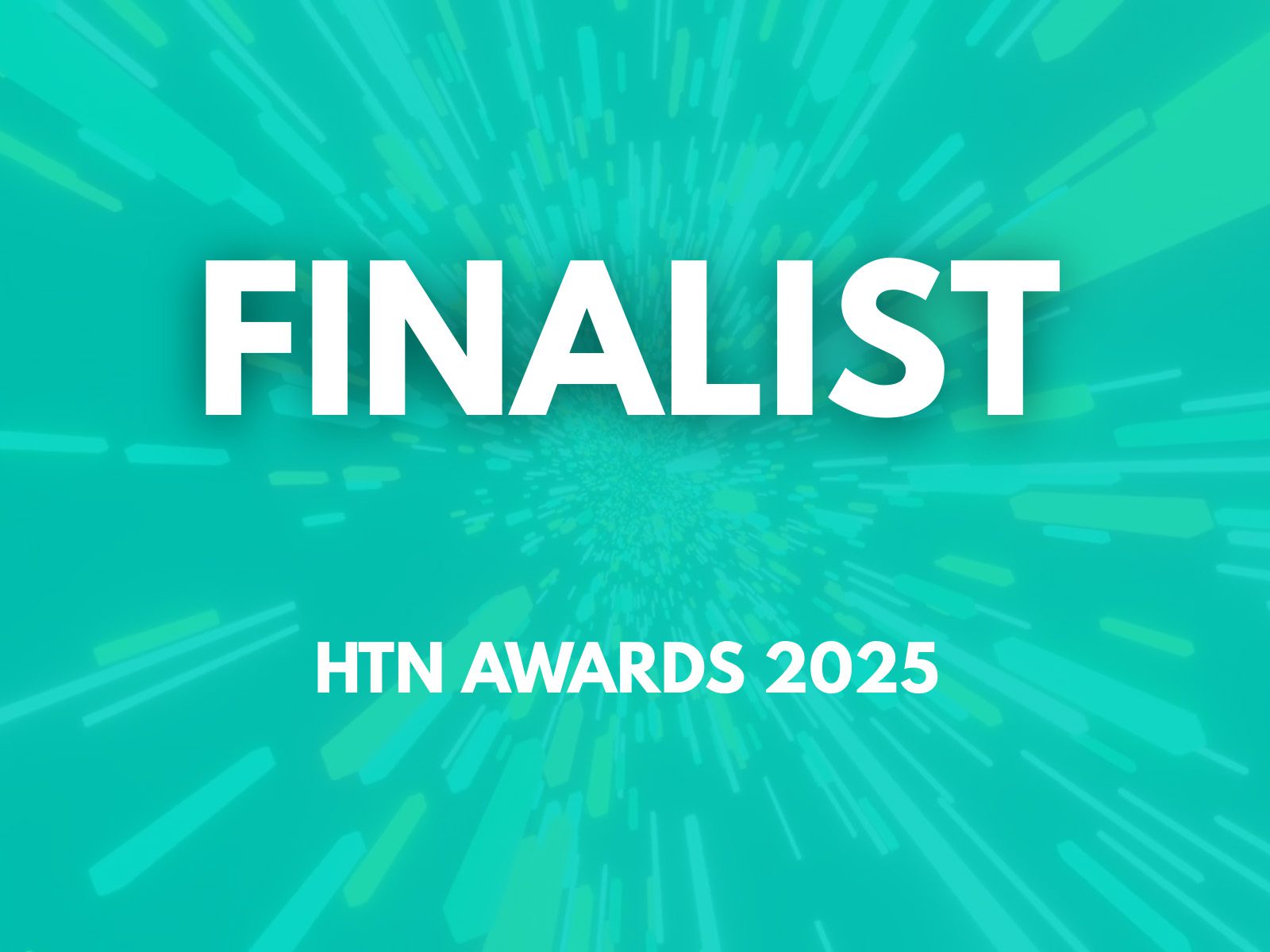Since starting to use Nervecentre on mobile devices, nurses at Doncaster and Bassetlaw Hospitals NHS Foundation Trust (DBTH) are spending less time on admin tasks and more time with their patients instead. Nursing staff at the trust’s hospital wards are using digital care plans instead of paper, and its specialist palliative care team is using Nervecentre to simplify and rationalise how it records and uses clinical notes.
Digital Care Plans
Ward nurses at DBTH are using Nervecentre’s digital care plans while they are with their patients to record more accurate and complete information, improve compliance, and free up valuable time.
The previous paper-based care plans had columns of blank boxes that nurses filled in by hand. They could write as much or as little as they wanted, so the level of detail varied. With digital care plans in Nervecentre, nurses now have standardised plans that can be customised for each patient. Digital guidance for care regarding safety, nutrition, and rehabilitation, to name a few, is helping nurses to complete care plans consistently.
Tanisha Rose, a Digital Nurse Practioner within the DBTH Digital Transformation Directorate, has led the trust’s Nervecentre Care Plan implementation. This is how she describes the initial impact:
Now we’ve got completely structured documentation. The quality of the recorded data is massively better, and the Ward Managers have commented on how much their documentation has improved since we started using Nervecentre for care plans.
Our care plans are standardised, but we can personalise them, too, so we’ve got a real individual care plan for each patient. That makes a tremendous difference to the care we provide. Nurses can quickly look back and see what’s been done before. Communication has improved as well because the notes section makes it really easy to share information between the nurses and other members of the multidisciplinary team. Plus, they can access this information on any trust device – no need to hunt for the notes!
Intuitive and easy to use
DBTH is rolling out Nervecentre’s digital care plans across its hospitals, one ward at a time, with a device-agnostic approach. Some nurses like to use mobile phones to complete care plans at the patient’s bedside and others prefer laptops. Whichever they choose, the nurses have the same Nervecentre experience that focuses on usability – making it fast and easy for nurses to do their jobs well. Tanisha describes a real-world example of how great usability makes a difference,
On our very first ward there was a nurse who was apprehensive about the technology and thought she’d never be able to do her documentation on a phone. But we showed her that she could dictate into the phone to write her care plans. I think her documentation is probably the best out of all of them now. She sits with the patient with her phone, and she dictates to write the documentation, which is brilliant. She loves it and tells everyone about it because it’s so much easier.
Releasing time for care
Nervecentre’s digital care plans are freeing up nursing time too, as Tanisha explains,
Nurses say they’re spending more time with patients because they can do their care plans quicker than before, especially when a patient doesn’t have complex needs and they’re independent and mobile. In these cases, there’s no need to write reams and reams of text. Instead, it’s very easy to tick to confirm what they’ve done – and that’s saving them so much time to spend with the patients, which is what we’re all here for.
DBTH is also using Nervecentre to save time for its specialist palliative care team. Georgina Redfearne, also a Digital Nurse Practitioner at the trust, worked with the Specialist Palliative Care Lead to simplify and optimise how clinical notes were captured and made available for reporting, with dramatic results. Georgina describes the dramatic results,
Previously, the palliative care team were duplicating data by entering into 3 different systems. Nursing staff were required to complete a paper referral and manually transcribe and handwrite what the patient was admitted with and their past medical history. Now, nurses are putting that information straight into Nervecentre during the handover. There’s no need to duplicate it and that’s saving so much time.
An audit comparing the first two months of using Nervecentre to the previous year showed statistically significant time savings. There are six nurses and two admins in the team. Between them, they save as much as 55 hours a week by not writing, copying and putting data in other systems.
This significant drop in the amount of admin time spent in the office re-documenting is being converted to patient time, and now the specialist palliative care team can see five or six more patients each week because of this time-saving.
The real benefits of digital transformation
Many people think the main reason to digitise care is to use less paper. You can’t deny that’s better for the planet and more sustainable, but DBTH are realising the true benefits of digital transformation – the opportunities that arise from embracing digital and data instead of simply replicating paper processes with an electronic equivalent. In this instance, digitising healthcare is improving the quality and accessibility of patient information, and saving nursing time that is being spent with patients. Ultimately, both of these benefits are improving care.







